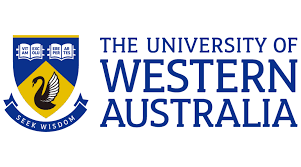University of Western Australia: Latin literature expert invited to Princeton
An expert in Latin literature at The University of Western Australia has been invited to become a ‘member’ of the Institute for Advanced Study, based at Princeton University in the United States in 2023.
Professor Yasmin Haskell, from UWA’s School of Humanities, studies Latin literature from and since the Italian Renaissance.
The trained Classicist’s research includes the Latin Enlightenment and the culture of the Society of Jesus (Jesuits) who engaged in evangelisation and apostolic ministry in 112 nations.
“The Jesuits were educators and scientists, but also poets and dramatists. They are particularly famous for classicising Latin literature,” Professor Haskell said.
The Society of Jesus was an order of the Catholic Church founded with the approval of Pope Paul III in 1540 but then suppressed by Pope Clement XIV in 1773 on political grounds.
“My focus will be on a Portuguese Jesuit who was exiled to the Veneto region in the second half of the 18th century. He wrote an epic poem on the return of American Jesuits to Europe after they were suppressed,” Professor Haskell said.
“He wrote in Latin partly to foster esprit de corps (pride) in his exiled brothers, and in the hope that the Society of Jesus would one day be ‘reborn’. It was, of course, and the current Pope is a Jesuit.
“Ironically, in the light of current sad events in Europe, some of the suppressed Jesuits were given safe haven by Catherine the Great and taught Latin in Russia. It’s a fascinating period of transition from the early modern to the modern world.”
The Institute for Advanced Study in Princeton, New Jersey, is one of the world’s leading centres for curiosity-driven research and when Professor Haskell takes up her position early next year she will be following in the footsteps of 35 Nobel Laureates.
In the meantime, she is leading a group of historians of emotion, science and literature, as well as archaeologists and linguists, creative practitioners and performers to explore the history and future of emotions in space at UWA’s International Space Centre.
“Our purpose in foregrounding the humanities is to show that it is really important that whoever goes to space will be going as terrestrials and will be carrying all sorts of history, ideas and philosophies which are rooted in this place,” Professor Haskell said.
“It’s not like we can venture out into space and just start again from scratch. This all connects in a broad way to my interest in the history of humanism.”

